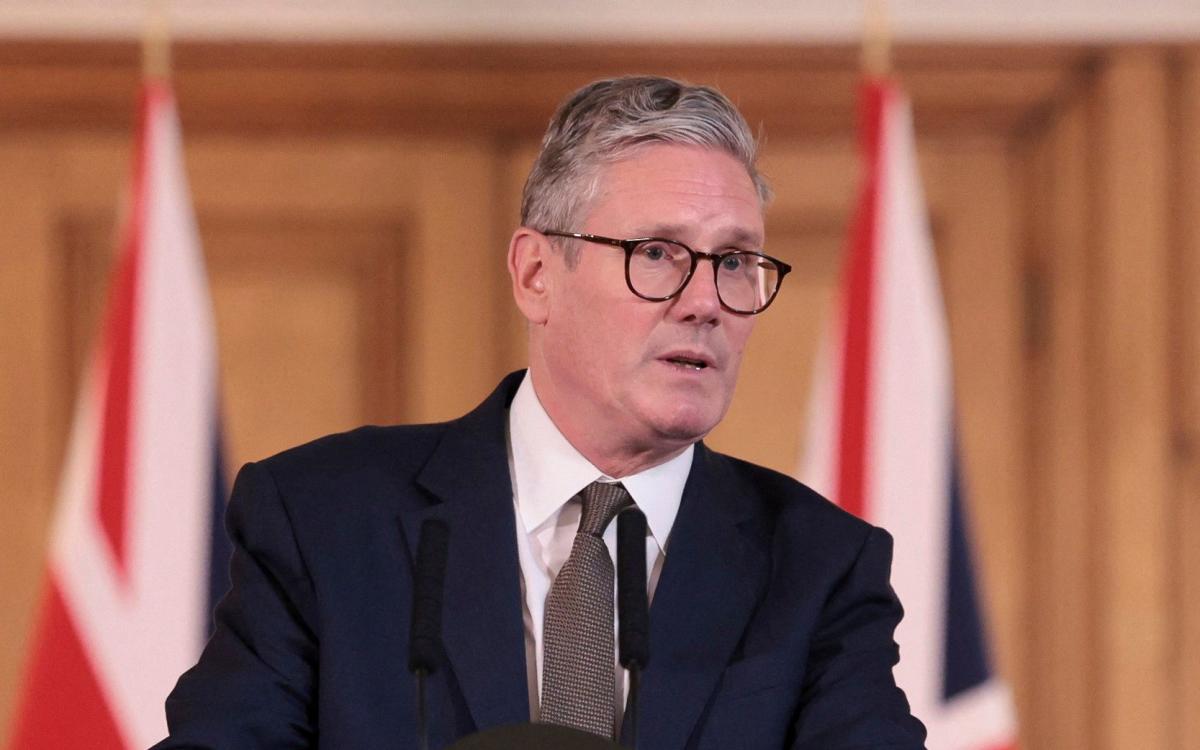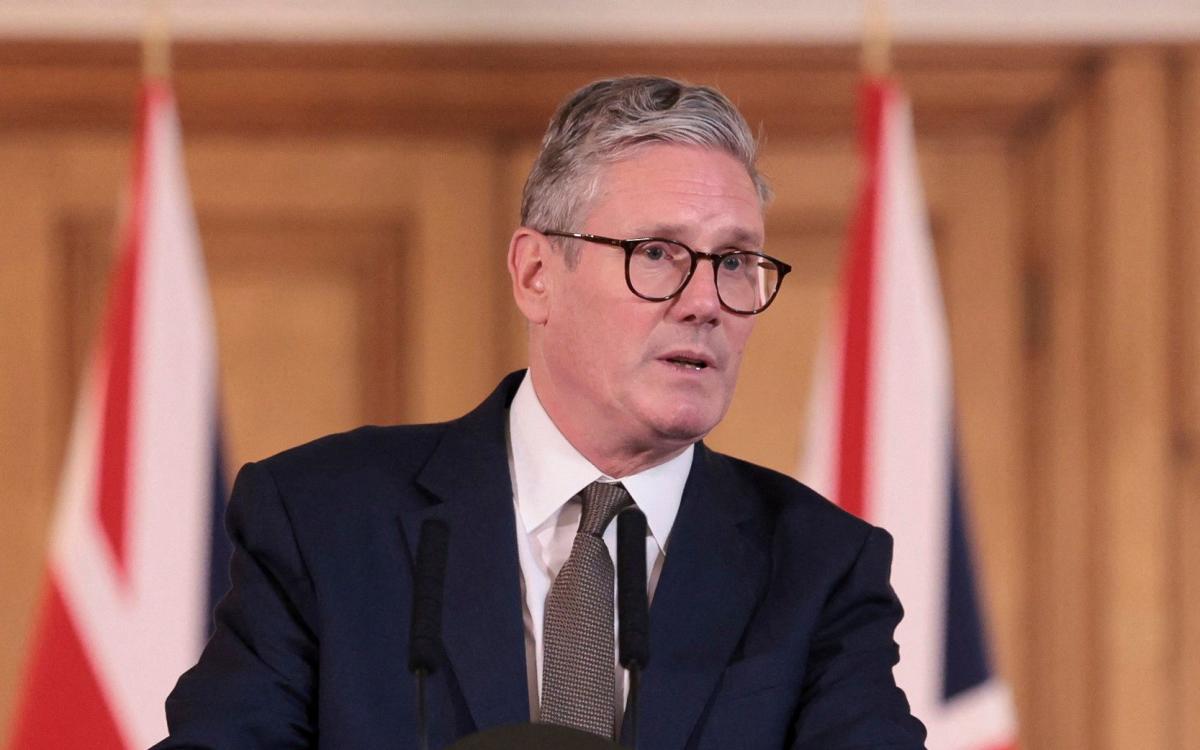
My teenage son, who cast the first vote of his life last week (for Labour), surprised me yesterday by revealing that he’d actually been paying attention to political developments in the last few days. “I think Starmer is doing a pretty good job,” he told me, making me immediately nervous lest he decides to copy his old man’s mistakes and pursue a political career.
But I agreed with him. Because it’s true. Our new prime minister has settled into his new job remarkably well. Who knows what anxieties are expressed behind that famous black door in the privacy of the Downing Street flat? But from an observer’s perspective, Starmer looks comfortable, confident and seems to be bringing a sure touch to the job of the nation’s helmsman.
That is as good a start as anyone could have hoped to make after the ructions of Thursday evening and the chaos in government over the last decade or so. Starmer looks and behaves like a grown up, and having a grown up in charge of the government feels like a wholly novel experience.
In the first days of any new government it is appointments rather than policy initiatives that catch the eye, that tell you what direction the new administration is headed. And at least a few of Starmer’s new ministers, especially those from outside his own MPs, tells us that this is someone who is in as much of a hurry to change the country as he was, as opposition leader, to change his party. James Timpson’s appointment as prisons minister and (Lord) Peter Hendy’s new role as railways minister strongly suggest that Starmer wants people to lead policy in areas where they actually have some expertise. Okay, it will never catch on but it’s encouraging nonetheless.
But already there have been mistakes. That so many observers (including Labour supporters) refused to believe the Prime Minister would follow through on making David Lammy foreign secretary spoke much of the confidence those critics had in Starmer’s common sense and political judgment. But the Prime Minister has disappointed them and the rest of the country by elevating the Tottenham MP to one of the four great offices of state anyway. Perhaps Starmer believed that, having refused to appoint Emily Thornberry to the cabinet (another wise move, incidentally) he couldn’t afford to be seen to snub another London MP.
Whatever the reason, we now have a foreign secretary whose opposite numbers in Moscow, Beijing and Washington know changes his mind on subjects as fundamental as the nuclear deterrent according to which way the political wind is blowing and who assumes whatever position – unilateralist or hawk – will best advance his personal career prospects.
Before the general election and during the campaign, Starmer sounded as if he was edging towards a more positive position on women’s rights, visibly moving on from the days in which he criticised one of his own MPs for suggesting that only women have cervixes and even agreeing with Tony Blair (though not his female colleague who said the same thing) that “men have penises and women have vaginas”.
If there were cynics who thought this was no more than a public relations tactic, an attempt to try to straddle two opposing positions – that “transwomen are women” (as the Stonewall catechism tells us) and “women have the right to female-only spaces” – they look to have been proven right by Starmer’s decision to appoint Anneliese Dodds as women and equalities minister.
Dodds is famously unable to define what a woman actually is, telling the BBC’s Women’s Hour last year that there are “different definitions legally around what a woman actually is”. When asked again, she said: “I think it does depend what the context is.”
If the minister responsible for safeguarding women’s rights cannot say what a woman actually is, prepare for Starmer to appoint a transport minister unable to tell the difference between a Boeing 747 and the number 12 bus to Clapham.
But there has also been a major misstep in policy too, and given that it has happened in the vexed area of immigration, it may be taken as a foreshadow of troubles further down the line. Having cancelled the Rwanda scheme – dismissed by Starmer as not being a deterrent at all, despite the fact that it hadn’t yet begun to operate by the time the election was called – the government has announced that 90,000 illegal immigrants earmarked for a one-way trip to sunnier climes will now be allowed to claim asylum in the UK. And as sure as eggs is eggs, the vast majority of them will be accepted as bona fide refugees desperate to escape the nicer weather, beautiful food and high culture that epitomises the hellhole that is northern France.
This has already been condemned by the new shadow home secretary, James Cleverly, as “an effective amnesty”, and if, as is likely, it is seen as such on the beaches of Calais, we can expect a boom season for Channel crossings this summer. If the government does have a plan to stop the boats, it is already running out of time to implement it.
Starmer has made a good start. But he cannot afford to make any more ham-fisted or party-mandated appointments to important government roles. And he certainly can’t afford to allow the public to suspect his government is going to adopt a “come one, come all” approach to illegal immigration. In the early months of a new administration, they are prepared to forgive much. But it’s the point where the honeymoon ends that he must worry about.
EMEA Tribune is not involved in this news article, it is taken from our partners and or from the News Agencies. Copyright and Credit go to the News Agencies, email news@emeatribune.com Follow our WhatsApp verified Channel





